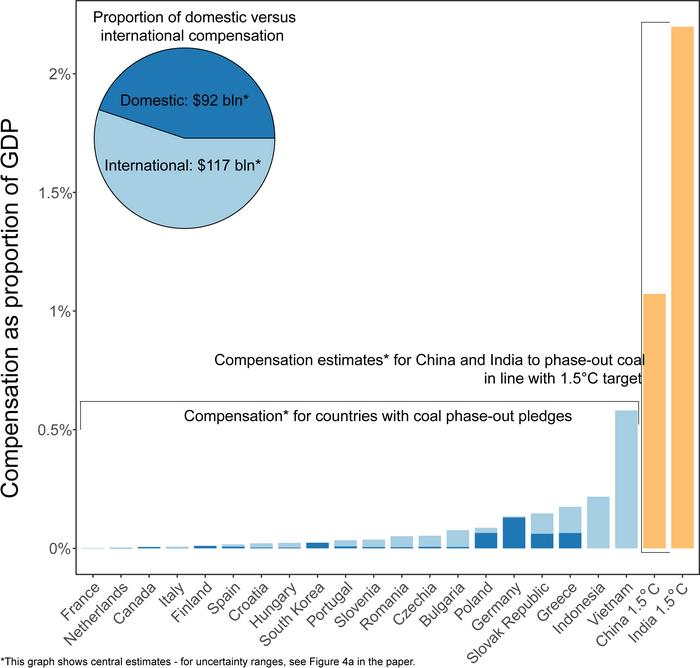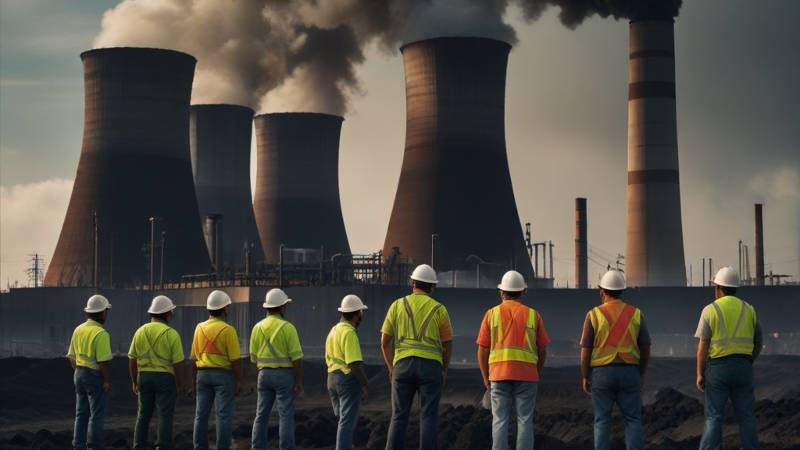As the world grapples with the urgent need to address climate change, a new study by researchers at Chalmers University of Technology in Sweden and Central European University in Austria has shed light on the complex challenges surrounding the global coal phase-out. The findings, which delve into the financial implications of “just transition” strategies, reveal that compensating affected parties could cost upwards of USD 2 trillion for China and India alone.
The Price of Progress: Compensation for Coal Phase-Out
The study, which examined government plans for coal phase-out around the world, found that more than half of these plans include monetary compensation for companies, workers, and regions negatively impacted by the transition away from coal. To date, 23 countries, representing 16 percent of the world’s coal power plants, have pledged approximately USD 209 billion in compensation.
Associate Professor Jessica Jewell, one of the study’s authors, notes that this financial support has been crucial in making coal phase-out politically feasible. “Previously, coal phase out has often been blocked by the interests opposing it. Many countries have put money on the table through ‘just transition’ strategies which has made coal phase-out politically feasible,” she explains.

The Trillion-Dollar Question: China and India’s Role in the Paris Climate Targets
While the compensation pledged by the 23 countries studied is significant, the researchers emphasize that achieving the goals of the Paris climate agreement will require the participation of the world’s major coal consumers, China and India. These two nations, which currently lack phase-out plans, account for more than half of the world’s coal plants.
The study estimates that for China and India to adopt compensation policies similar to those already in place, the cost would be a staggering USD 2.4 trillion for the 2°C target and USD 3.2 trillion for the 1.5°C target. Lola Nacke, a doctoral student at Chalmers University of Technology and co-author of the study, highlights the financial burden this would place on these countries, stating, “The estimated compensation for China and India is not only larger in absolute terms, but would also be more expensive compared to their economic capacities.”
As the world navigates the complex landscape of the coal phase-out, the question of financing just transition strategies looms large. With the estimated compensation for China and India alone comparable to the entire international climate finance pledged in Paris, the study underscores the need for a global effort to address the social implications of the fossil fuel decline.
“Discussions about the cost of climate change mitigation often focus on investments in renewable energy technologies – but we also see it’s essential to address social implications of fossil fuel decline to enable rapid transitions,” concludes Lola Nacke, highlighting the multifaceted nature of the challenge ahead.


